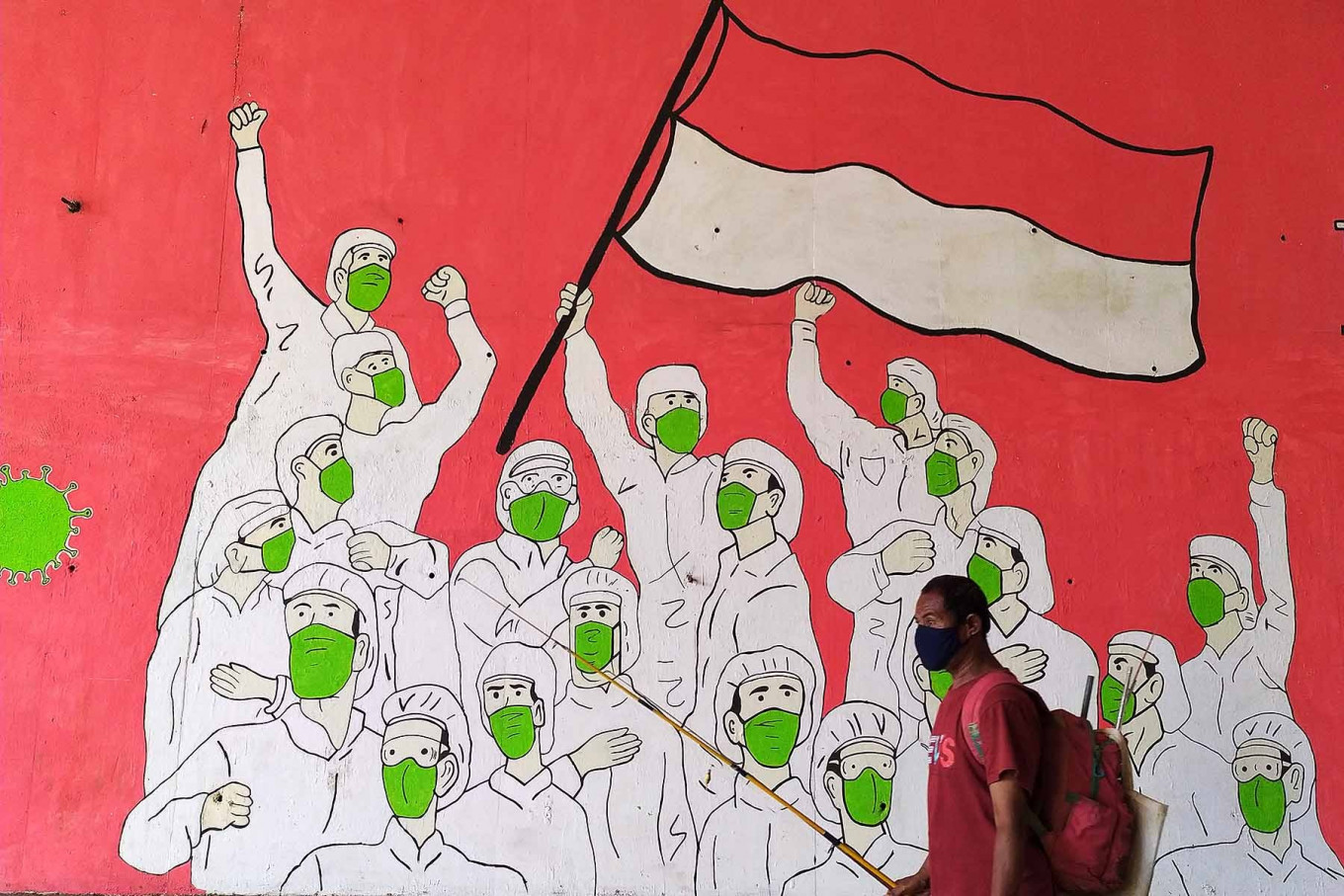Popular Reads
Top Results
Can't find what you're looking for?
View all search resultsPopular Reads
Top Results
Can't find what you're looking for?
View all search resultsEight months on, Indonesia loses 161 medical workers to COVID-19
Indonesia has lost at least 161 general practitioners, specialist doctors, clinical professors and other medial professionals in the eight months since the first COVID-19 cases were announced in March.
Change text size
Gift Premium Articles
to Anyone
T
he Indonesian Medical Association (IDI) has announced that 161 medical professionals had died of COVID-19 as the country entered its eighth month of the health emergency. The figure comprises 152 doctors and nine dentists.
“From March to October, a total of 161 medical workers have died as a result of COVID-19,” Adib Khumaidi, who chairs the IDI central executive board’s mitigation team, said in a statement on Tuesday.
The IDI’s data on COVID-19 deaths include 82 practitioners, of whom four were also professors and 68 were specialists, as well as six professors and two resident doctors. Among specialist doctors, internists recorded the highest toll with nine deaths, followed by surgeons with seven deaths and obstetrics and gynecologists with six deaths.
By province, East Java recorded the highest toll among medical professionals with 33 COVID-19 deaths, followed by North Sumatra (23), Jakarta (24), West Java (12) and Central Java (10). By municipalities and regencies, the North Sumatra capital of Medan recorded the highest toll with 22 medical professionals lost to the disease, followed by the East Java capital of Surabaya (19) and then Central Jakarta (15).
Adib added that the association was still awaiting confirmation on the statuses of two doctors.
In terms of demographics, the deaths comprised 130 male doctors and 22 female doctors. The highest toll was recorded among doctors aged 56-60 with 23 deaths, followed by doctors aged 51-55 and 66-70, with each age group recording 20 deaths, and then those aged 71-75 with 18 deaths.
Since the first two confirmed cases were announced in early March, the virus has spread to all 34 provinces in the country to result in a cumulative total of nearly 418,400 confirmed cases by Tuesday. More than 14,000 Indonesians have died from the severe acute respiratory infection, while around 349,000 have recovered.
Responding to the situation in the medical profession, Adib said that the long holiday weekend could potentially cause another nationwide surge in the next two weeks, as reported by kompas.com.
Adib’s concern stems from the previous two surges that occurred 10 to 14 days after the extended holidays in May and August.
Read also: Government-gears-up-for-COVID-19-spike-after-'cuti bersama’
The cuti bersama (collective leave) during Idul Fitri in May caused a 41 percent surge in new COVID-19 cases, while the long Independence Day weekend in August caused a 21 percent spike in new cases.
“We need to really pay attention to people with COVID-19 but without symptoms,”said Adib, stressing that asymptomatic people may not be aware that they could still spread the virus to others.
Mobility also increased as people traveled over the long holidays, which heightened the risk of transmission and geographical distribution of SARS-CoV-2, the virus that causes COVID-19.
Separately, national COVID-19 task force spokesman Wiku Adisasmita said the government was working closely with regional administrations and the task force in anticipating a potential surge in new cases following the most recent cuti bersama, from Oct. 28 to Nov. 1. Among the preventive measures are the intensified supervision of quarantine procedures at airports and seaports, as well as the implementation of the electronic health alert card (eHAC).
The government has also set up a special referral pathway for people with positive test results to obtain treatment. (mfp)
Editor’s note: This article is part of a public campaign by the COVID-19 task force to raise people’s awareness about the pandemic.










